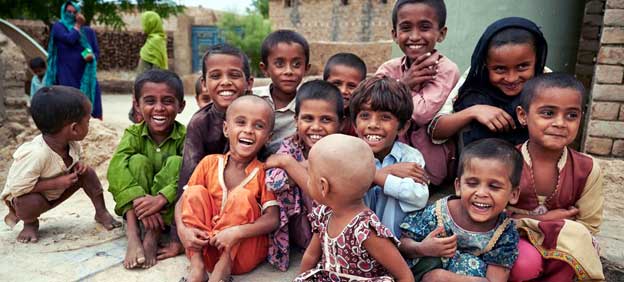[ad_1]

WASHINGTON DC, Mar 28 (IPS) – Worldwide household planning and reproductive well being (FP/RH) are critical to achieving gender equity, however U.S. funding in them just isn’t almost enough to satisfy the second.
The Biden-Harris FY2024 budget request proposes to take a position $619.43 million for bilateral FP/RH packages plus $57.5 million for the United Nations Inhabitants Fund (UNFPA)– a complete of $676.8 million. That’s 11% greater than Congress appropriated final yr, and it’s one of the only proposed funding increases within the world well being sector this yr, but it’s nonetheless only a fraction of what’s wanted.
The fair-share U.S. contribution, i.e. what it might must contribute proportionately to make sure the all girls of reproductive age in low- and middle-income nations (LMICs) have their trendy contraception wants met, is calculated to be $1.736 billion.
Household planning offers individuals management over their very own our bodies and futures. At its core, it’s about empowering people to make knowledgeable choices about their sexual and reproductive lives, together with if, when, and what number of kids to have, and the way far aside to house births.
Entry to household planning allows girls to pursue their education and participate more meaningfully in financial and political life.
These are all needed parts of gender equality. But U.S. funding for worldwide FP/RH has stayed flat for a decade whereas world inhabitants, reproductive well being wants, and limitations to entry have been rising. It’s excessive time for the U.S. to satisfy its duty to assist shut the hole.

There are 923 million girls of reproductive age in LMICs who wish to keep away from being pregnant. A couple of quarter of these (218 million) have an unmet want for contemporary contraception. They wish to keep away from being pregnant however will not be utilizing a contemporary methodology. Causes for this fluctuate from government restrictions on accessing contraceptives to service suppliers refusing to distribute them to having to journey daunting distances to the closest clinic.
These hurdles are compounded by gender-based discrimination. For instance, stigma surrounding contraceptives and intercourse make it significantly tough for young, single women to entry companies.
Marginalized teams face discriminatory attitudes in clinics, together with within the U.S., the place members of the LGBTQ+ neighborhood, immigrants, and Black, indigenous, and different individuals of shade are often denied services and resources to satisfy their household planning wants.
The world wants way more strong help from the U.S. to beat these obstacles and pave the best way to attaining world gender equality. Because of the lack of enough funding to dismantle limitations to sexual and reproductive well being and rights (SRHR) worldwide, U.S. help for overarching gender equality objectives will inevitably be weakened, a brand new Inhabitants Institute report finds.
Some governments are displaying they perceive this downside and are altering insurance policies accordingly. For instance, President Xiomara Castro of Honduras simply lifted a 14-year ban on emergency contraception, which can revolutionize entry to FP/RH companies. Starting April 1, the provincial authorities of British Columbia will present prescription contraception at no charge.
The U.S. has a duty to guide on world SRHR however ceded its management lately and is getting left behind. U.S. bilateral and multilateral FP/RH packages have been below assault, particularly within the wake of Trump-era restrictive policies.
The modest increase in FP/RH funding within the present finances proposal reveals the Biden-Harris administration acknowledges the significance of world SRHR. But it surely doesn’t mirror the urgency or stage of dedication wanted.
On the similar time, it undercuts SRHR by together with the Helms Modification, an outdated prohibition on utilizing U.S. international help funding for abortion as a technique of household planning. In observe, implementing the Helms Modification has meant denying abortions even in instances of rape or incest, or in cases where it would save a woman’s life.
Failure to purpose at U.S. fair-share ranges of FP/RH funding within the newest finances proposal is a missed alternative. Let’s not miss any extra. World inhabitants lately handed the 8 billion mark, and the necessity is rising.
We will meet the second by recognizing the basic connections between SRHR, gender equality, and sustainable improvement, and accepting the duty of the U.S. to guide on attaining them.
Maniza Habib is Analysis Affiliate on the Inhabitants Institute, a nonprofit based mostly in Washington, D.C. that helps reproductive well being and rights.
IPS UN Bureau
Follow @IPSNewsUNBureau
Follow IPS News UN Bureau on Instagram
© Inter Press Service (2023) — All Rights ReservedOriginal source: Inter Press Service
[ad_2]

